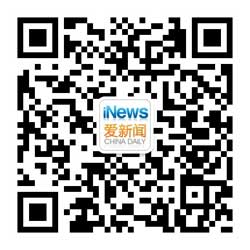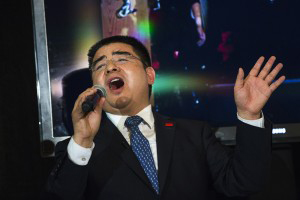|
查看原文
Chen Guangbiao, a bespectacled, babyfaced Chinese millionaire, really wants you to know who he is. He wants you to know how influential he is. How charismatic he is. How beloved he is. How prominent he is. But ultimately, Chen Guangbiao really just wants you to know Chen Guangbiao.
“How many Americans know that I am here in New York right now?” Chen asked New York Magazine’s Jessica Pressler earlier this year in an interview at the Essex House in Manhattan. “How many media outlets have written about me? Out of 300 million Americans, what percentage would you say have heard of me?” Then, later, he leaned in. “Tell me,” he said. “Do you think Americans like what I do? Any of this? Will they like me?”
He’s not off to a great start. The man hails himself on his business card as the “Most Influential Person of China,” the “Most Prominent Philanthropist of China,” the “Most Well-known and Beloved Chinese Role Model” and, simply, “China’s Foremost.” But he hasn’t had much luck in the United States. It began with his failed bid to buy the New York Times — “I’m very good at working with Jews,” he said — and now encompasses Wednesday’s debacle at Loeb Boathouse in Central Park.
Last week, Chen took out an ad in the New York Times. He was wearing a thin grin and many gold medals for unknown reasons. He said he plans to host 1,000 “poor and destitute” Americans for lunch, each of whom “will receive 300 dollars.” He vowed to “fill the world with love,” compared himself to Chinese cultural icon Lei Feng, and later assured that he would sing “We are the World” in English at the lunch.
He made good on all his promises — “We are the World” was indeed sung, and sung buoyantly — but he forgot one thing: the money. The $90,000 was instead donated to New York City Rescue Mission. And by meal’s end, the 250 homeless people who showed up for steak and green beans were calling him a “fraud” and a “thief,” according to the New York Daily News.
“The meal was lousy, the cash didn’t come,” Clarence Taylor said to the newspaper. “Prey on someone else. Why are you preying on the homeless?” Chen Guangbiao, a Chinese millionaire who made his fortune off the recycling business, invited homeless New Yorkers to a lunch Wednesday at a Central Park restaurant.
Another man, retired Vietnam war veteran Harry Brooks, told Agence France-Presse he was “highly upset” that he didn’t get the cash, but conceded he enjoyed the food “very much. I could use the $300. Clothing for one thing.”
One man told the Daily News it made “no sense. A lot of us are down on our luck. We really needed that money. That’s why we came. All these people wouldn’t be here if they weren’t getting nothing but some steak and some string beans.”
How did Chen Guangbiao go so wrong so fast? Audacity has always been both kind and merciless to Chen. The quality dragged him out of a poor farming community north of Shanghai, where two of his siblings starved to death and where he began working at age nine, hauling water into the village to sell it cup by cup to support his family. It pushed him through Nanjing University of Chinese Medicine. And it propelled him to found his own recycling business, amass $800 million of unknown provenance, and soar into onto the list of China’s richest 400 people.
It also, however, led him into an unusual quest to purchase the New York Times. Chen is famous in China for sliding cash to victims of China’s 2008 earthquake,posing with stacks of money,wearing green suits and selling“canned fresh air.” But he wanted fame outside China’s borders.
On Jan. 5 of this year, he penned a bold editorial in the Global Times headlined, “I intend to buy The New York Times, please don’t take it as a joke.”
Comparing his purchase of the Gray Lady to a spacecraft taking off for the moon, he said he wanted to “rebuild [the Times's] credibility and influence. … The tradition and style of the New York Times make it very difficult to have objective coverage of China. If we could purchase it, its tone might turn around.”
He confessed he was “bewildered” that some had thought his acquisition funny. “I may be a maverick, but it doesn’t mean I like playing tricks. I want to purchase the New York Times.”
Alas, it wasn’t meant to be. The Times declined the offer, and he immediately queried the Wall Street Journal to see if it was interested in having him as its owner. (It wasn’t.)
“Chen said he was aware that many American papers were Jewish-owned,” the South China Morning Post reported. “He said he was up for the job since he had ‘equally competent IQ and EQ’ compared with Jews. ‘I am very good at working with Jews,’” Chen offered.
When he met with a Journal reporter, he quickly posed for photographs with hired security guards, who declined his request to brandish their guns for the picture — liability concerns, they said.
He then forked over one of his business cards to the Journal reporter. It described his charisma, influence and heroism. “Please remember one thing,” Chen said. “Whatever I say is true.”
|
查看譯文
中國這位戴著眼鏡,有點嬰兒肥的富翁陳光標,真的很想讓你知道他是誰。盡管他也想讓你知道他的影響力之大,魅力之大,受人喜愛之深,成就之卓著,但歸根結底,陳光標只是想讓你知道他這個人。
今年早些時候,陳光標在曼哈頓的埃塞克斯酒店接受了《紐約雜志》杰西卡·普雷斯勒的訪問,在訪問中,他問到:“有多少美國人知道我現(xiàn)在在紐約?有多少媒體報道過我?你覺得在3億美國人中,有多少人聽說過我?”隨后,他又靠近了問到:“告訴我,你認為美國人喜歡我做的事嗎?任何一件事?他們會喜歡我嗎?”
但是,陳光標出師不利。雖然他在名片上自詡為“中國最具影響力人物”、 “中國最具號召力慈善家”、“最知名最受喜愛的中國模范”等諸多頭銜,簡而言之,就是“中國之最”。但是他在美國卻沒這么走運。這始于他未能競標購買《紐約時報》——雖然他仍說:“我很善于和猶太人打交道。” 現(xiàn)在又多了一件事:6月27日在紐約中央公園洛布船塢餐廳(Loeb Boathouse)失敗的慈善午宴。
上周,陳光標在《紐約時報》上刊登了一則廣告。廣告中的他露齒而笑,還莫名地掛著很多金牌。他稱將為1000名美國“窮人及流浪漢”提供免費午餐,還會為每個人發(fā)放“300美元援助金。”他將自己與中國文化楷模——雷鋒,相提并論,發(fā)誓要讓“世界充滿愛”,隨后,他還保證會在午宴上用英文演唱《天下一家》。
據(jù)《紐約每日新聞》報道,陳光標兌現(xiàn)了所有諾言——他確實唱了《天下一家》,還唱得深情款款。但是他忘了一件事:援助金。那9萬美元的援助金后來捐給了紐約市救援團體。到午宴結束的時候,陳光標被250名流浪漢稱作“騙子”和“小偷”,因為他們只吃到了牛排和青豆而已。
克拉倫斯·泰勒(Clarence Taylor)告訴《紐約每日新聞》:“午餐很差勁,現(xiàn)金也沒兌現(xiàn)。“要騙就騙別人,為什么要欺騙無家可歸的人?”
一位越戰(zhàn)退休老兵哈里·布魯克斯(Harry Brooks)告訴法新社,沒拿到錢他“相當失望”,但他是承認自己“非常享用午餐。我本可以用那300美元先買點衣服的。”
有人向《每日新聞》表示,這種出爾反爾的行為“沒道理。我們中的很多人都不走運,很需要那筆錢,這就是我們來這兒的原因。如果只是為了吃一些牛排和青豆,大家就不會來這兒了。”
陳光標怎么這么快就出了差錯?他大膽的性格一直是他的“雙刃劍”。陳光標出生于上海北部的一個農村,因為貧困,家中哥哥姐姐先后餓死。他9歲就開始掙錢,把水挑到村里,一杯一杯售賣來支撐家庭。憑著自己的大無畏精神,陳光標從南京中醫(yī)藥大學畢業(yè),并創(chuàng)立了自己的再生資源利用公司,不知以何種渠道積累了8億美元的資金,一躍成為中國前400名富豪。
然而,這種“大無畏”的性格也讓他做出了要收購《紐約時報》這種不尋常的言論。陳光標在中國揚名,是因其在2008年汶川地震中的大額贈款,與一堆現(xiàn)金合影,身著綠西裝,售賣“罐裝新鮮空氣”等事件。但是,他并不希望僅讓名聲局限于國內。
今年1月5日,他在《環(huán)球時報》撰文,標題為“我收購《紐約時報》,別當笑話聽。”
陳光標欲意購買“灰衣女士”的舉措,像是“放了一個衛(wèi)星”。(譯注:由于堅持古典嚴肅,《紐約時報》也被戲稱為“灰衣女士),他稱希望“重建該報的公信力和影響力……《紐約時報》因其傳統(tǒng)和風格,很難對中國做出正確報道。如果我們能買下它,該報對中國的語調也許會有所改變。”
陳光標坦誠,當聽到有人覺得他收購的想法很滑稽時,他感到很“困惑”。“也許我是個特立獨行的人,但這并不意味著我愛耍花招。收購《紐約時報》是出自真心。”
可惜啊,事與愿違。《紐約時報》拒絕了陳光標的收購,隨后他又立馬轉向《華爾街日報》,看看該報對的他收購是否感興趣。(顯然沒興趣。)
據(jù)《南華早報》報道,陳光標稱他知道眾多美國報刊都是由猶太人掌控的。而自己的智商和情商絲毫不遜于猶太人,完全有能力勝任同樣的職位。他說:“我很善于和猶太人打交道。”
當他與《華爾街日報》記者會面時,他很快擺好姿勢要跟警衛(wèi)合影,還讓警衛(wèi)舉起槍來。不過考慮到職責在身,警衛(wèi)拒絕了陳的請求。
隨后,他將自己的名片遞給日報記者。名片上寫的都是他如何有魅力,有影響力,又多么具有英雄主義。陳說:“請記住一件事,我說的一切都是真的。”
(譯者 samycai 編輯 丹妮)
掃一掃,關注微博微信
 
|

